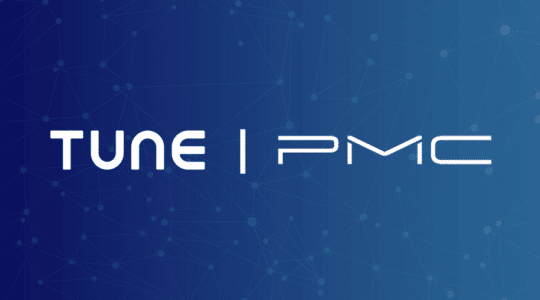
There are many moving parts involved in the development and launch of a new affiliate marketing program. Mapping out performance metrics and recruiting the right media partners are key components, but the biggest challenge most clients face lies within their ability (or lack thereof) to set their programs up for end-to-end success before they go to market. The professional service offerings of a robust partner platform such as TUNE can be a step in the right direction, but other vital resources should also be taken into consideration.
Having a dedicated in-house affiliate management team is best, but not always possible, particularly for small clients with limited financial or human resources. Larger brands usually lean into hiring agencies with a specialized focus in affiliate strategy and managed services, including partner recruitment. Both options make sense regardless of business size and budgets, but the most critical asset to any program is the affiliate manager.
What Is an Affiliate Manager?
Interchangeable terminology can be confusing in the affiliate space, especially when we talk about traditional affiliate marketing versus non-traditional partner marketing. (That’s an article for another time.) There are key differences between them, despite any surface similarities.
The same is true for job roles and responsibilities. A business development manager, account manager, or even a partnership manager each have unique skill sets. While some may revolve around affiliate programs in a general sense, they do not all have the same training or expertise to manage actual affiliates.
An affiliate manager is responsible for the end-to-end management of an affiliate program, product offers, and audience channels after the initial launch by the brand. They are at the front of the line in performance-based marketing plans. Regardless of the partner platform, there is no true plug-and-play or autopilot setting to replace the necessary human involvement of an affiliate manager. (Algorithms measure data, but someone has to know which levers to pull, right?)
Here are five essential areas where an affiliate manager can make a difference to any program.
Coaching and Strategy
Affiliate managers are the best coaches when it comes to navigating the competitive landscape, setting payouts, and implementing program optimization. They’re often responsible for negotiating terms, approving offer details, and maximizing audience targets. Exceptional affiliate managers have a keen eye for evaluating performance reports and possible tracking discrepancies, in which case they put on their referee cap and make the tough calls to pull the plug. If you have questions about positioning your offer with publishers and target audience, an affiliate manager should be at the top of the list.
Partner Recruitment
As we’ve shared many times before, partner recruitment is ongoing. When it comes to adding partners and managing expectations, affiliate managers have the responsibility of identifying traffic channels and audiences in alignment with brand messaging and budgets. They also understand the importance of user engagement and its effect on revenue potential. Affiliate managers with a broad knowledge of affiliate marketing partner types and payment models make it easier for brands to add the right partners at the top of a program launch. They work hard to find and maintain the balance between both parties.
Campaign Creatives and Content Approval
We’ve all heard the adage that a picture is worth a thousand words, right? Banner creatives and landing pages are like a department store window display. They should attract, engage, and motivate a customer’s response and subsequent action. Affiliates are the new “storefront,” and with so many businesses transitioning online, brand awareness depends on strong recognition and resonance.

Photo by Windows on Unsplash
In the old days, brands relied heavily on design and communications agencies to produce compelling images and ad copy. Affiliate managers were responsible for approving the final creative assets and pitching the final ad campaigns to the publishers. Those with a background in art, photography, or psychology understood the high potential for publisher rejection due to poor visual representation or failing to connect with the interests of their intended audience.
Today, social media influencers and digital content creators control the narrative and messaging through the production of trending user-generated-content (UGC), intentionally crafted to appeal to audiences within their public and personal social communities.
But where does that leave affiliate managers? Well, someone has to recruit these modern-day media superstars.
Optimization
Let’s say an affiliate program has been up and running for a couple of months. The payout is comparable to similar offers in the market, but click-through rates and conversions are stalling. This is usually the result of fluctuations in backend ad spend, user flow, or poor partner performance. Optimizing the offer to identify the problem can be simple, and a savvy affiliate manager is the best resource for guidance. They may recommend adjusting the payout based on spend versus conversion rate. If any changes need to be made, they will have an idea of what is a sensible adjustment without exceeding the brand’s budget.
The affiliate manager may also suggest A/B testing with multiple creatives and landing pages without changing the payout. Some images and language resonate stronger than others. Small tweaks to headlines and ad copy can make a huge difference, particularly when the call to action is made clear to the audience.
If the first two methods don’t move the needle in the right direction, then the issue may be poor partner performance. Affiliate managers should monitor partner performance on a routine basis. They should pay close attention to any sudden spikes or drops in traffic, which may indicate publisher fraud. It is their responsibility to remove any questionable traffic sources as quickly as possible.
Performance Evaluation
The ultimate goal of any affiliate program is building a loyal customer base, making sales, and generating long-term revenue. The ability to accomplish those objectives depends on the technical, financial, and human resources underneath the hood of their affiliate engine. While technology and automated solutions make the car run faster, affiliate managers will always have a place behind the wheel.
Affiliate Managers for the Win
Affiliate managers are well worth investing in for the weight they can pull in your program. These benefits are only the tip of the iceberg. Are there other pros or cons to having an affiliate manager? Let me know in the comments below!
No affiliate manager to help run your partner program? No worries.
Download our 10 Mistakes to Avoid When Starting an Affiliate Program e-book and learn the biggest no-no’s to steer clear of — and how to fix things if you do trip up on the path to success.
Author
Tie Davidson is a seasoned veteran in the Affiliate Marketing space. As the Partnerships Manager at TUNE, he is committed to sharing his industry knowledge and expertise with brands, agencies, and media partners, while providing education and support for their program recruitment efforts. Tie currently resides in NYC, and spends his spare time as a local food influencer and life coach.





Leave a Reply
You must be logged in to post a comment.